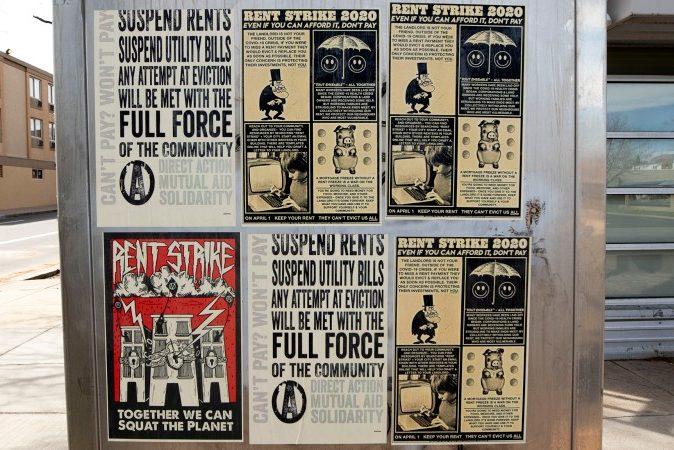
Gov. Jared Polis originally placed a moratorium in March when Colorado shut down a lot of its economy because of the COVID-19 pandemic.
As the months progressed, Colorado is slowly opening its economy. The Colorado Department of Employment and Labor re-instituted its work search requirement to qualify for unemployment benefits and are asking Coloradans to prove that they are a part of a vulnerable population that is susceptible to contracting the disease and should not work.
Still, a lot of people remain out of work and many are still worried about making rent. Over the past three months, 568,721 Coloradans have filed for some form of unemployment.
Colorado’s temporary eviction ban expired last week. Immediately after the expiration, Gov. Jared Polis issued an order to delay all legal proceedings for evictions for another month. Landlords can also begin charging late fees.
That does not mean people cannot be evicted, according to Jack Regernbogen, an attorney with the Colorado Center on Law and Policy.
“People can already be evicted for other reasons that aren’t related to nonpayment of rent,” he said. “If someone violated the lease, regardless of how small or how large a violation might be, they could be served with a shorter demand.”
With this order, tenants are allowed to have 30 days to catch up when it’s normally 10. But in some cases, it can be as small of a window as three days.
“Those cases do nothing to prevent sheriff’s from executing those orders and kicking people out of their homes,” he said.
Here are the key dates to watch out for over the next few months.
July 14
This is when Polis’ latest order will expire. If he chooses not to extend, Regernbogen expects more eviction filings for nonpayment.
Some tenants will be safe under The Coronavirus Aid, Relief, and Economic Security Act (CARES). CARES only protects rental units in properties that participate in federal assistance programs, have been federally subsidized, or have a federally-backed mortgage.
July 25
Eviction protections under the federal CARES Act expire. Landlords must provide a 30-day notice so there wouldn’t be another increase in evictions till late August.
August 1
The extra $600 worth of unemployment benefits under CARES expires July 31. Heading into August, many people will have less income for rent and necessities.
August 25
This is the date where the 30-day grace period under CARES expires and when landlords can begin filing.
Zach Neumann, co-founder of the COVID-19 Eviction Project, said he expects to see a bigger spike in evictions between late August and September. This is because people will lose their enhanced unemployment benefits and have a harder time paying in August. However, those who already had non-traditional work situations and people who are not able to collect benefits, specifically undocumented people, will likely be affected sooner.
Neumann said as much as 400,000 Coloradans will be at risk for eviction by September. Neumann acknowledges that the figure is subject to change. Back in April, the projection was 460,000 but that has since gone down since more people are going back to work.
“I’m sure some landlords will not evict tenants who they could evict,” he said. “I’m sure some tenants who are facing risks will just choose to move out and move in with family.”
Neumann said he already is seeing clients who have already made the choice to move out to avoid eviction proceedings.








